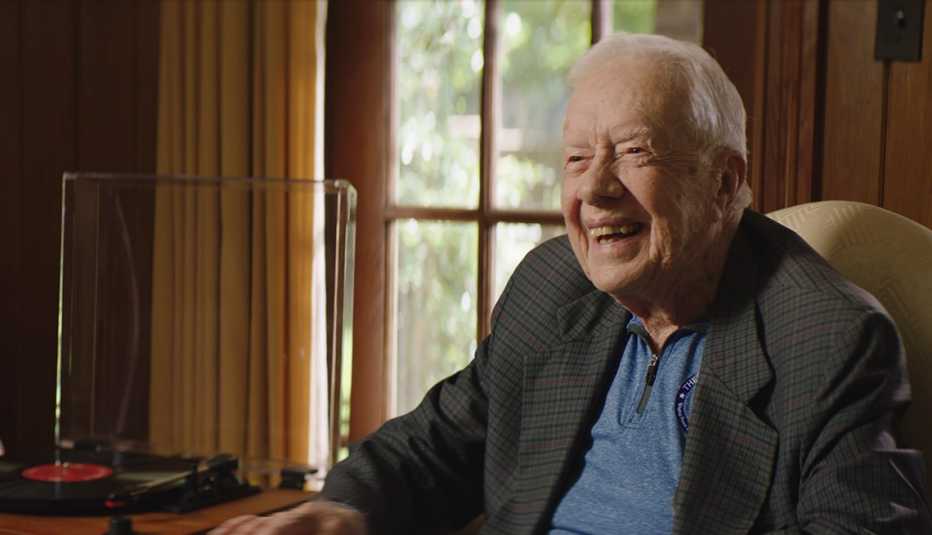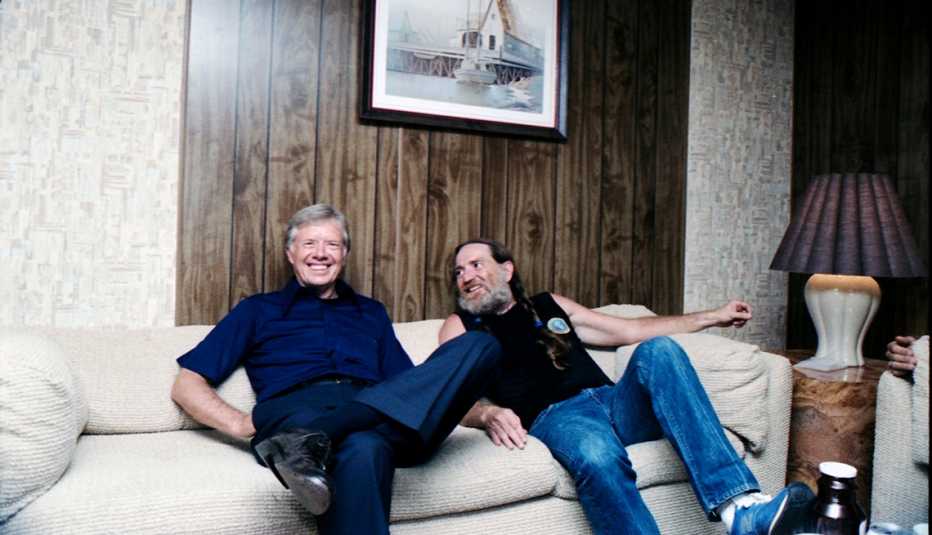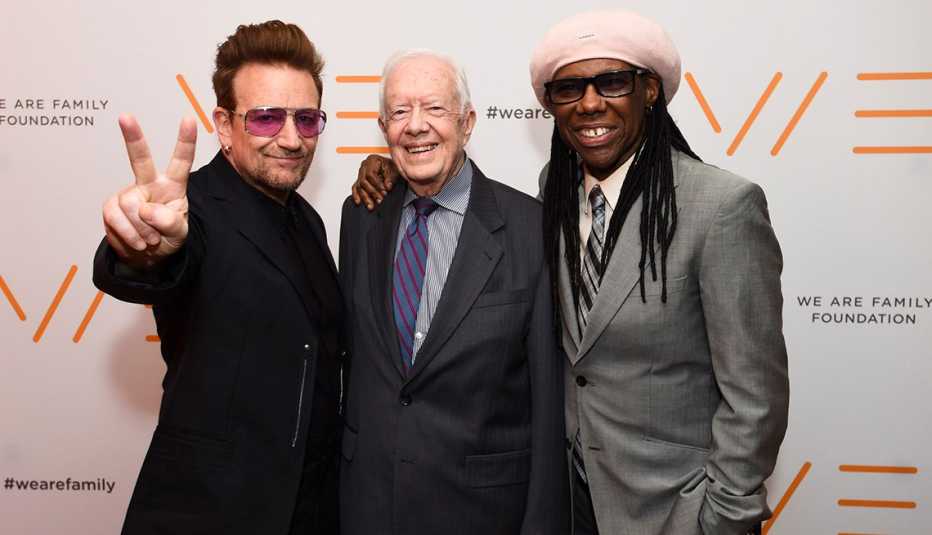Staying Fit


In 1976, few would have pegged Jimmy Carter as a rock ‘n’ roll rebel. He was a peanut farmer, a Southern Baptist, a Georgia governor and a former Navy officer who would soon become president. But a new documentary makes a strong case for his counterculture credentials. In Jimmy Carter: Rock & Roll President, director Mary Wharton examines how popular music helped a little-known politician from rural Plains, Georgia, ascend to the highest office in the land.
The film opens with a clip of candidate Carter quoting Bob Dylan's “It's Alright Ma (I'm Only Bleeding),” then jumps ahead 42 years to find the ex-president at home dropping his turntable needle on Dylan's “Mr. Tambourine Man.”


AARP Membership— $12 for your first year when you sign up for Automatic Renewal
Get instant access to members-only products and hundreds of discounts, a free second membership, and a subscription to AARP the Magazine.
Rock & Roll President chronicles music's role in Carter's campaign, presidency and life after the White House, through archival footage and an astounding array of interviews. Musicians weighing in include Dylan, Willie Nelson, Bono, Paul Simon, Jimmy Buffett, Rosanne Cash, Trisha Yearwood, Nile Rodgers, Garth Brooks and Gregg Allman (who gave one of the last interviews before his death in 2017). Former Secretary of State Madeleine Albright appears, as does civil rights leader Andrew Young.
Filmmakers twice interviewed the now-95-year-old Carter, who asserts, “Music is the best proof that people have one thing in common no matter where they live, no matter what language they speak."
The former president may be best remembered for the Iran hostage crisis, the Camp David Accords, the Panama Canal treaties and skyrocketing gas prices that fueled his landslide loss to Ronald Reagan in 1980. He was also the first major politician to seriously partner with rock ‘n’ roll and youth culture. The documentary reveals Carter's lesser-known side as a music lover with close ties to Nelson, Dylan, the Allman Brothers and other superstars of the era, who not only threw their weight behind his campaign but also developed lasting friendships with him. As Carter tells it, the Allmans put him in the White House by performing fundraisers when he ran out of money.
Dylan and Carter formed a lasting bond after the songwriter visited the state mansion in Georgia. In the film, Dylan recalls: “When I met Jimmy, the first thing he did was quote my songs back to me. It was the first time I realized my songs had reached into the mainstream. It made me a little uneasy. But he put my mind at ease by showing me he had a sincere appreciation. He was a kindred spirit."



































































More on entertainment
Review: 'Linda Ronstadt: The Sound of My Voice'
A bittersweet look at the '70s barrier breaker'Amazing Grace': Aretha Franklin's Lost Concert Film Soars
Footage of her 1972 album recording showcases late legend's gospel rootsMovie Review: 'David Crosby: Remember My Name'
The singer-songwriter comes clean about his rocky life